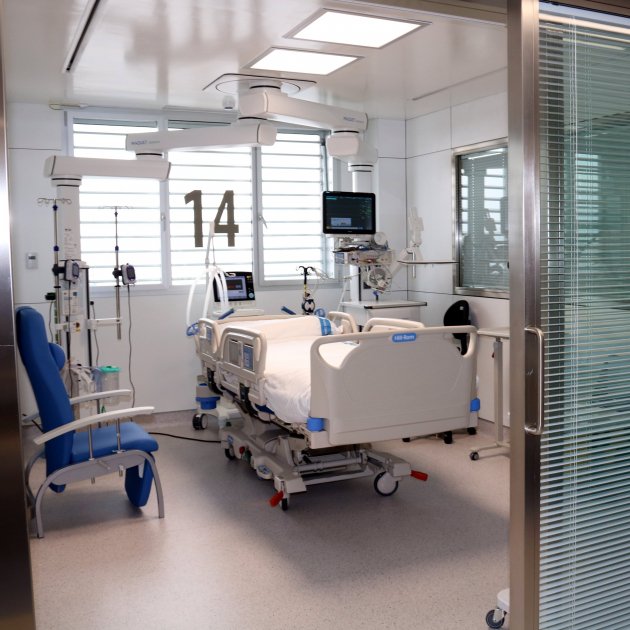Intensive Care Units (ICUs) are being prepared to prioritize the coronavirus patients with highest life expectancy and probable quality of life. This, as hospitals in Catalonia ready themselves to deal with the scenario that the health system could be pushed beyond its capacity by the coronavirus crisis.
There are two aspects of this: firstly, clinical criteria, considering the physical, medical specifics; and secondly, ethical criteria. It is in this second area that leading associations of the healthcare sector have agreed on a protocol for action based on recommendations and analyses made by bioethics experts (link in Catalan).
These recommendations have been agreed by more than twenty groups, in an initiative of the Barcelona Medical Council, which also takes in other associations across the Spanish state such as the Spanish Internal Medicine Society (SEMI), the Observatory of Bioethics and Law, and the Spanish Palliative Care Society (AECPAC) among many others (the link is in Spanish).
Generally speaking, the criteria are set down based on the resources available, the characteristics of the patient arriving, and the ethical evaluation made when deciding what action is most appropriate.
On the other hand, the patient's wishes must also be taken into account. The chair of the Barcelona Medical Council's deontology commission, Montserrat Esquerda, emphasizes that "accompanying family members and the will of the patient are also basic in these moments" when decisions are made.
Some of the most significant measures that coronavirus and its consequences force doctors to evaluate in this exceptional situation are:
- Consider admissions to other ICUs or referral to other centres if required.
- Minimize for as long as necessary admissions for therapeutic tests.
- Do not admit patients who refuse invasive measures - whether "they have written it in a document or express it as their will", Esquerda explains.
- Assess each patient on an overall basis and not just for the type of illness they are admitted for.
- Take into account the "biological age" of the patient and their overall situation in the cases of elderly people (On this, Doctor Esquerda recalls that "age is one of the many factors but not the only one". And she gives an example: "If the patient has an advanced oncological disease, they are at more risk from the virus and therefore we apply fragility scales through which we already know who will be likely to respond to the treatment and who won't be." Therefore, age does not have to be the only reason and a specific age threshold is not set: "We have older people with very good health").
- In the case of a complication, foresee the option of de-intensifying care or a transfer to palliative care.
Thus, a general assessment is made which also takes into account the person's illnesses and their life expectancy. So, in ethical terms, the decision can be influenced by:
- The number of years of life saved (But in this regard, Dr Esquera insists that it is very important to assess "the highest quality of life and years recovered for the person").
- The possibilities that the patient will live.
- Avoid the criterion of first to arrive, first to be admitted. - "Accept that an admission may involve denying it to someone else," as the document states.
- Evaluate the admission of any person "with a life expectancy of less than one to two years", a factor already taken into account in normal hospital situations when they may be transferred to a palliative environment.
This analysis also contemplates the prioritization of patients in relation to Intensive Care Units, dividing them into four groups from highest to lowest: those of priority 1 are critical, unstable and need to be admitted to the ICU and monitored. Those in group 2 require oxygen therapy and may need urgent operations but are not receiving invasive ventilation. In 3, those in critical condition with a low chance of recovering from an acute illness. And group 4, those who are likely to benefit minimally from ICU due to an advanced or terminal condition or alternatively a low risk illness.
Dr Esquerda emphasises that the idea behind this document is "not to alarm the population, but to make people aware that this is serious, and to avoid getting to this stage". However, it is clear that "all the recommendations made must be thought through and listened to beforehand."
These recommendations also ultimately depend on each particular case and situation. Says Esquerda: "It is very difficult for us to fully understand the current reality we are living through, and we hope this tool never needs to be used".
